How new-fangled computers took over general practice
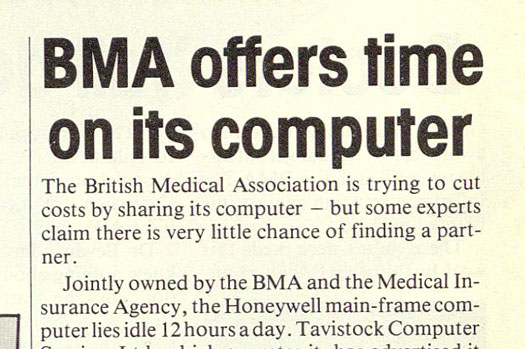
For better or worse, technology has become an intrinsic part of GP practice. Gripes with IT are now commonplace. But while the 21st century GP is used to the disappointment of digital systems – slow log-ins, crashes, freezes – those at the dawn of computer invention were far more giddy at the prospects.
Slow changes
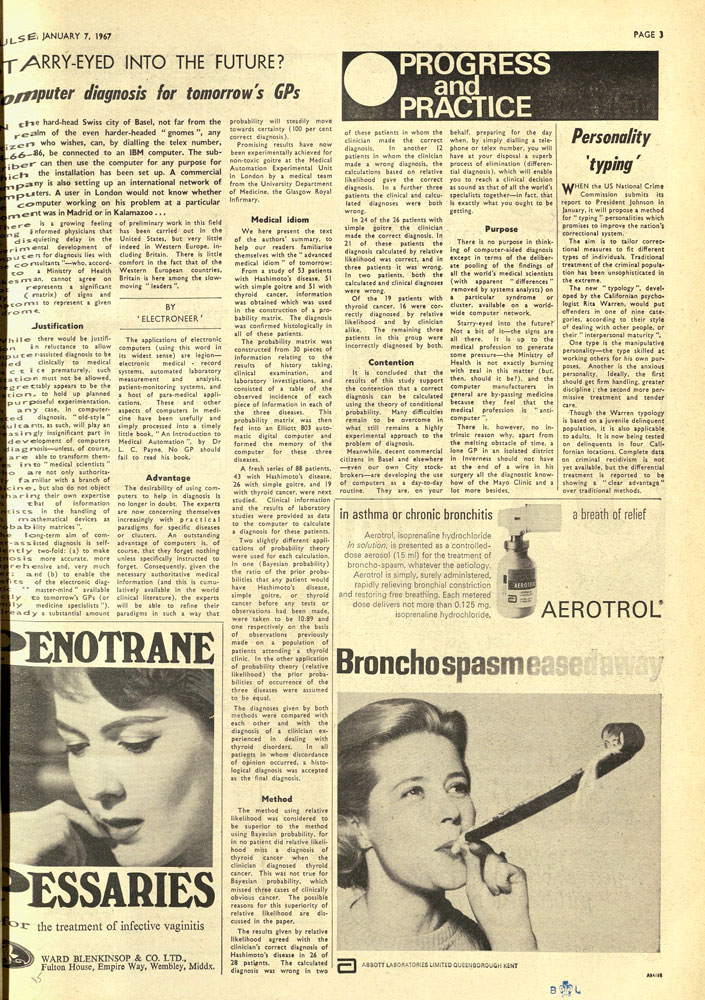
technology birthday 1967 01 starry eyed 705x1000px
In 1967, a Pulse article described the buzz of anticipation around IT: ‘The applications of electronic computers are legion – electronic medical record systems, automated laboratory measurement and analysis, patient-monitoring systems, and a host of para-medical applications.’ The article is insistent that GPs are not being ‘starry-eyed’ – though it does acknowledge the Ministry of Health is ‘not exactly burning with zeal’ for changes to be brought in.
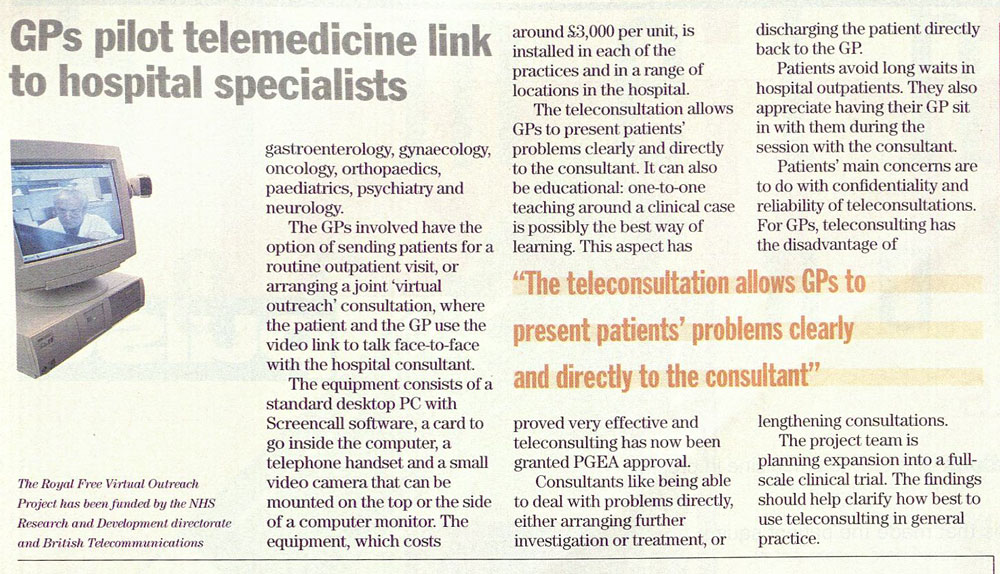
technology birthday 1997 05 telemedicine link 1000x574px
Today’s GP has come to learn the lesson of slow implementation. Medical records still aren’t all online and video consultations between GPs and hospitals consultants – which Pulse covered in 1997 – are not common, despite Babylon’s best efforts.
Data
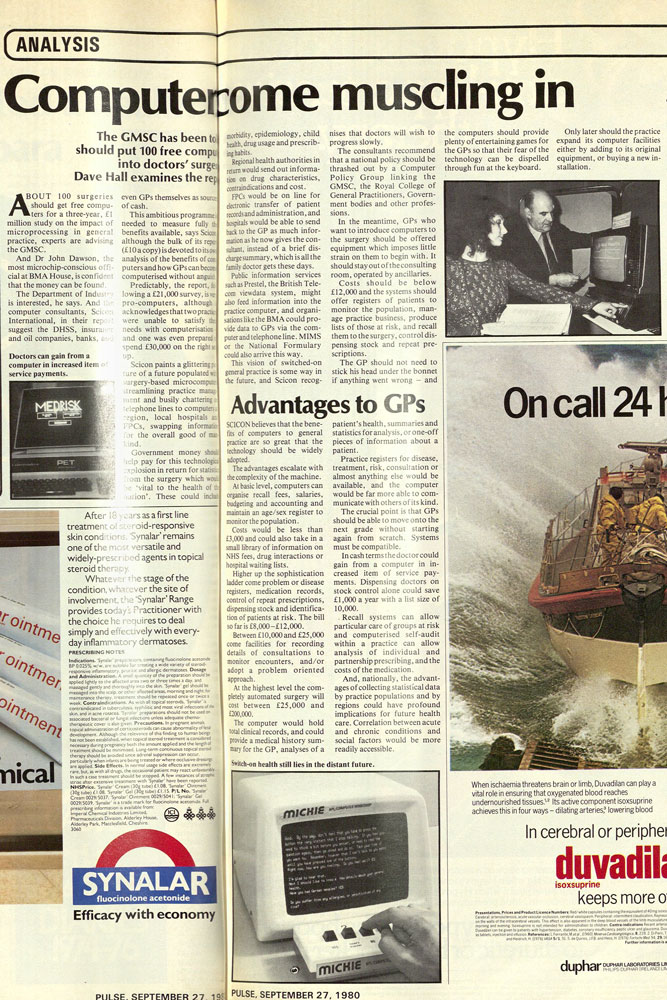
technology birthday 1980 09 computer come muscling in 667x1000px
Patient data has been at the heart of technology debates for decades. Subject access requests are currently en vogue, as GPs’ patients can now request their health record for free under GDPR rules.
In 1980, computer consultants were talking up the possibilities of big data – a Pulse article notes private firm Scicon International advocates government money be spent on placing computers in practices ‘in return for statistics from the surgery which would be “vital to the health of the nation”.’
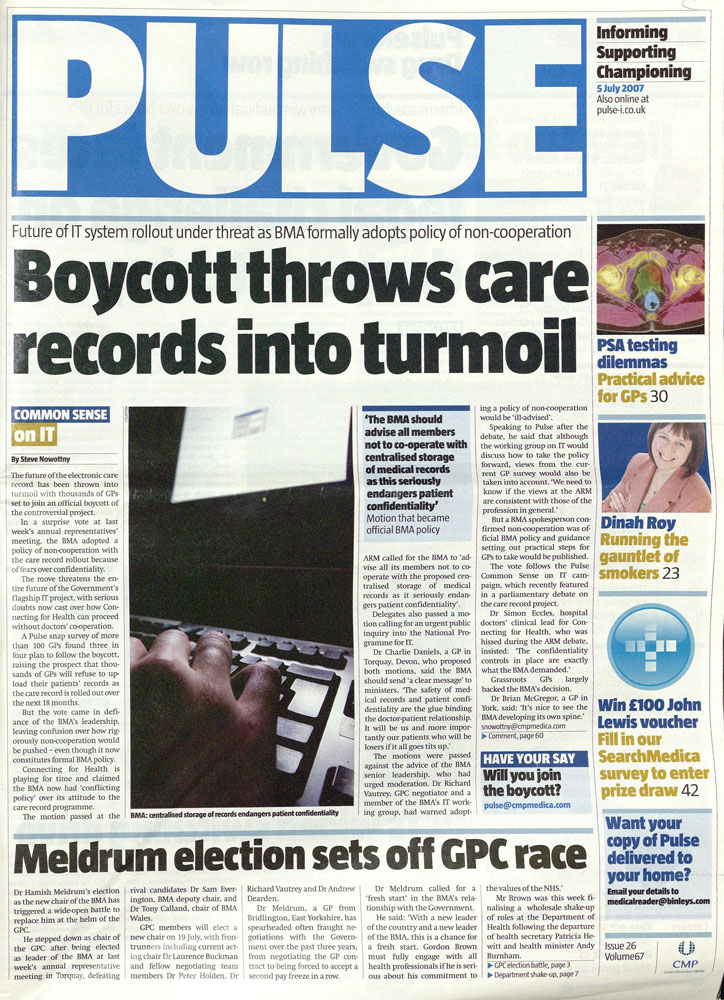
technology birthday 2007 10 fp 724x1000px
In 2007 GPs took a stand over patient confidentiality. At the BMA annual representatives’ meeting, the profession voted to boycott the rollout of electronic care records.
Resisting nuisance patients
GPs continue to discuss whether using technology to increase access to general practice – now through video consultations – will only add another lane to the motorway for patients and fuel demand further.
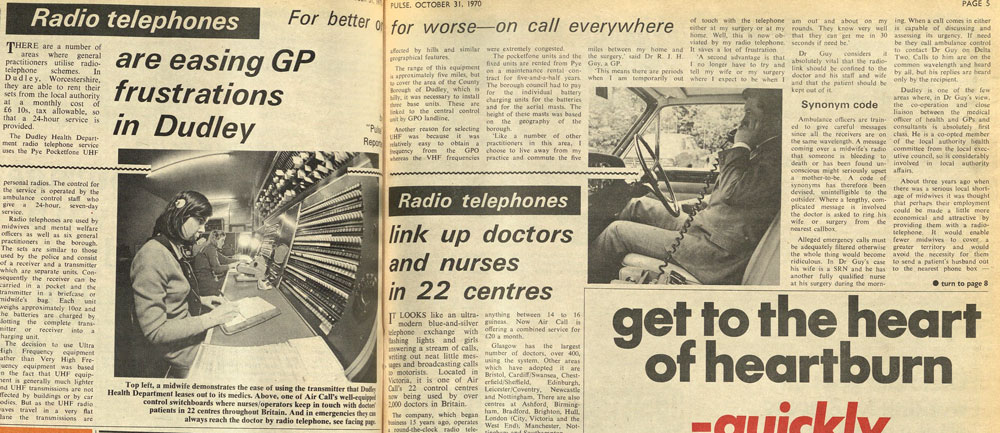
technology birthday 1970 10 dudley 1000x433px
In 1970, an article on the use of ‘radio telephones’ by GPs during home visits is not much different. It refers to a family doctor who is insistent patients should not be ‘kept out’ of telephone contact with him: ‘Dr Guy considers it absolutely vital that the radio link should be confined to the doctor and his staff and wife’.
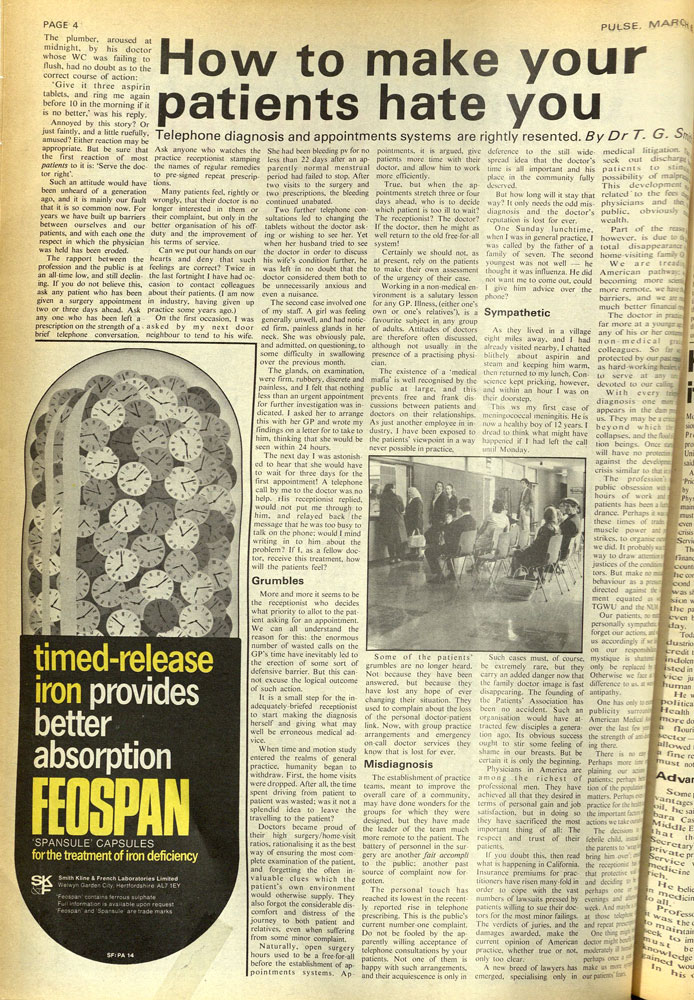
technology birthday 1976 03 left hand page 694x1000px
A 1976 opinion piece by a GP working in industry berates the practice telephone consultation system on behalf of patients who ‘feel their doctor is no longer interested in them or in their complaint’. After a receptionist fails to put him through to a doctor when he is calling on behalf of a patient, the frustrated GP concludes: ‘The enormous number of wasted calls on the GP’s time have inevitably led to the erection of some sort of defensive barrier.’
Funding woes
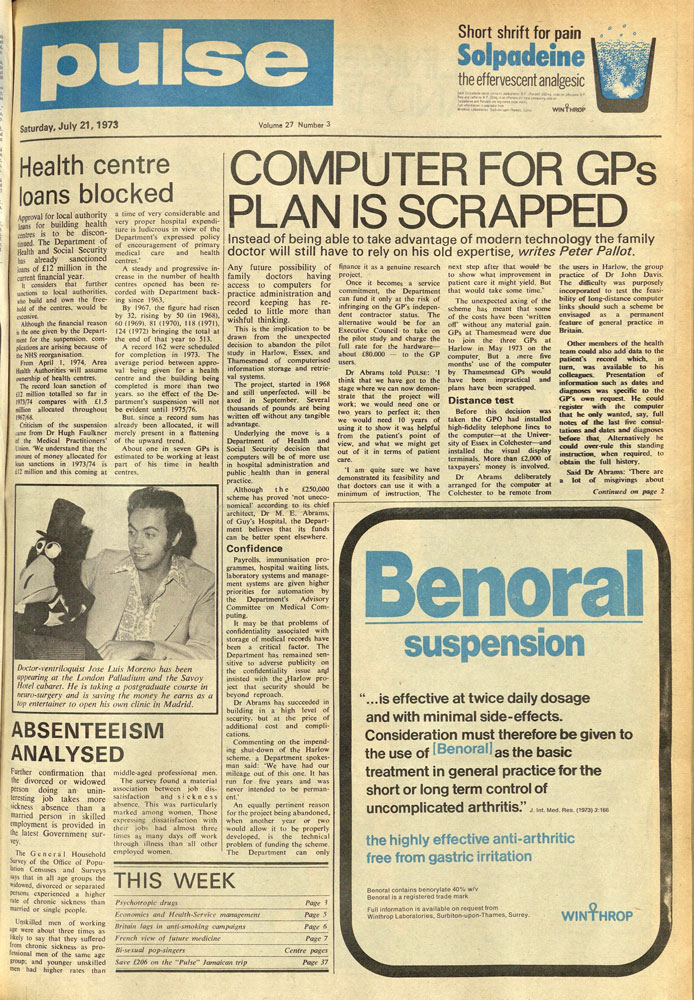
technology birthday 1973 07 computer for gps plan 694x1000px
The nation now has a tech enthusiast in health secretary Matt Hancock who is happy to commit millions to artificial intelligence projects in the wider NHS – such as early cancer detection and spotting signs of dementia. But the fight to get funding for basic IT infrastructure in primary care continues.
In 1973, the tussle between primary and secondary care for technology investment was also alive and well.
A pilot study involving GP practices in Essex and Thamesmead storing electronic information was scrapped after the Department of Health decided the money was better spent on computers in hospitals.
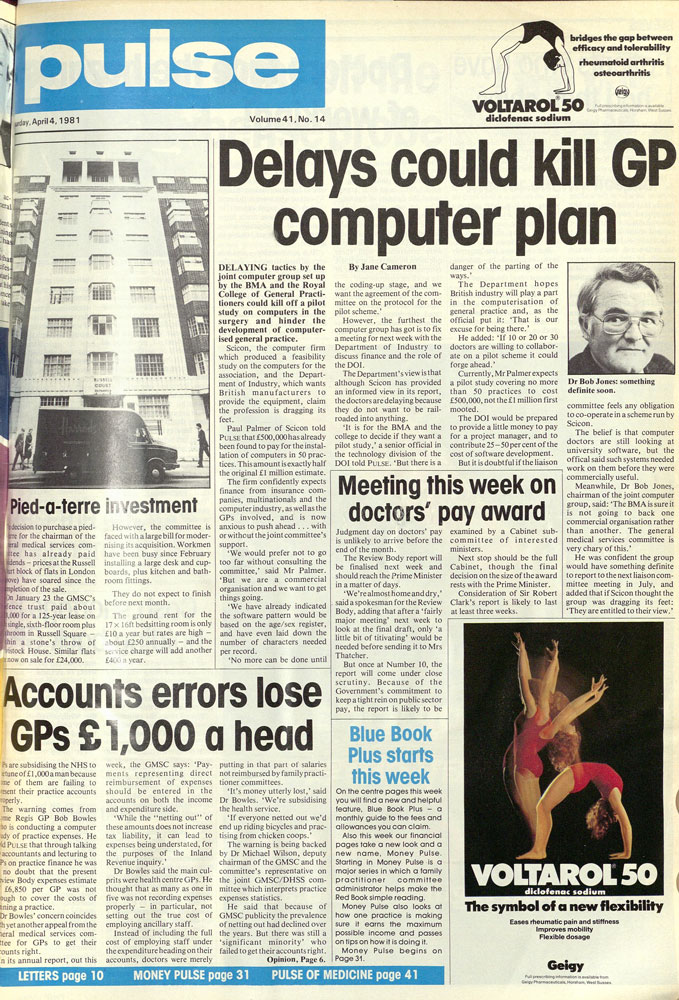
technology birthday 1981 04 splash 679x1000px
In 1981 a plan to pilot computers in 50 practices – at the estimated cost of £500,000 – was expected to be funded through ‘insurance companies, multinationals and the computer industry, as well as the GPs involved’. But the BMA and RCGP’s joint computer group were accused of delaying the plans after having only got as far as setting up a meeting with government officials to discuss finance.
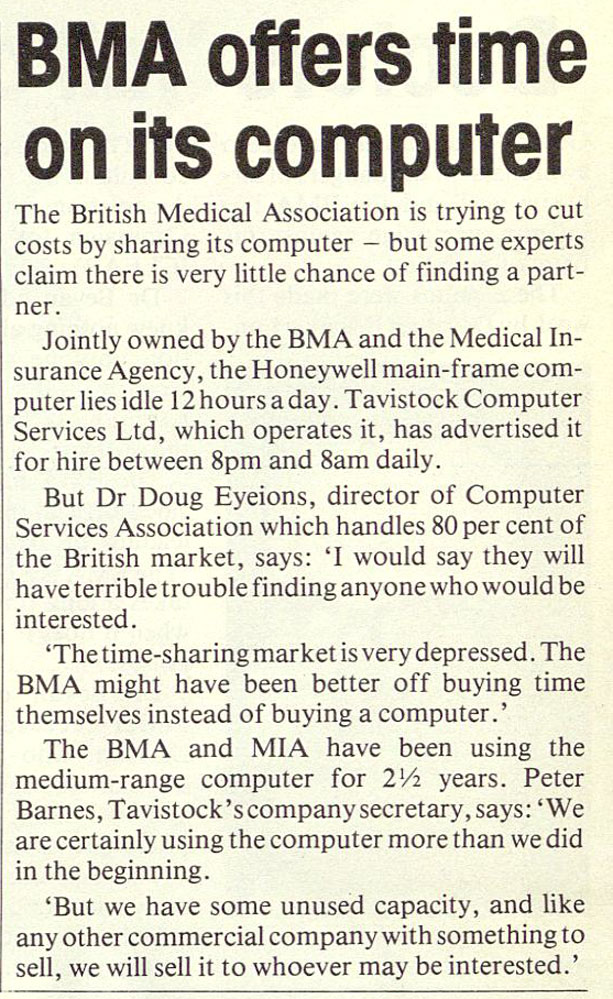
technology birthday 1982 02 bma offers time 613x1000px
Meanwhile the BMA had its own tech funding problems in 1982 after it jointly bought its own computer when, according to one expert, it would been more financially astute to have rented time from another one.
Pulse July survey
Take our July 2025 survey to potentially win £1.000 worth of tokens











